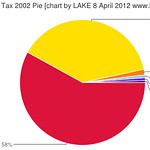Takao Yamada wrote for Mainichi Japan 2 April 2012, In light of further nuclear risks, economic growth should not be priority,
A report released in February by the Independent Investigation Commission on theFukushima Daiichi Nuclear Accident stated that the storage pool of the plant’s No. 4 reactor has clearly been shown to be “the weakest link” in the parallel, chain-reaction crises of the nuclear disaster. The worse-case scenario drawn up by the government includes not only the collapse of the No. 4 reactor pool, but the disintegration of spent fuel rods from all the plant’s other reactors. If this were to happen, residents in the Tokyo metropolitan area would be forced to evacuate.
Fukushima is about 200 miles from Tokyo. Plant Hatch at Baxley, which has the same reactor design as at Fukushima, is about the same distance from Atlanta and Charleston, closer to Tallahassee and Jacksonville, and much closer to many of us in south Georgia.
The article concludes:
We cannot accept the absurd condescension of those who fear the worse-case scenario, labeling them as “overreacting.” We have no time to humor the senseless thinking that instead, those who downplay the risks for the sake of economic growth are “realistic.”
So, what do you get in a solar spill? Sunshine. What do you get when a wind turbine breaks? Maybe some local damage. What do you get when a nuclear plant fails? Oh….
-jsq












